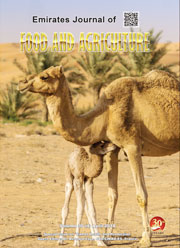Sulphated tubers extract from the giant taro Alocasia macrorrhiza inhibits the carcinogenesis initiation and modulates macrophage functions
DOI:
https://doi.org/10.9755/ejfa.2023.v35.i2.3004Abstract
Alocasia macrorrhizos (L.) G. Don, Araceae, is a traditionally edible plant known as giant taro. This work aimed to prepare sulphated
polysaccharide extract of A. macrorrhizos tubers (SAM) and to investigate its tumor anti-initiation and anti-promotion activities. Methods:
Enzymatic, colorimetric, fluorometric, and cell-based assays were used throughout the study. Tumor anti-initiation activity was investigated
by estimation of SAM effect on cytochrome P450 1A1 (Cyp1A1) glutathione-S-transferases (GST), glutathione (GSH), epoxide hydrolase
(mEH), and quinone reductase (QR), while Tumor anti-promotion activity was investigated by macrophage proliferation, nitric oxide (NO),
and LPS binding to macrophages. SAM inhibited the carcinogen metabolizing enzyme Cyp1A1 and it induced, to variable extent, the
detoxification enzymes (GST, mEH and QR), especially mEH. Additionally, SAM showed anti-inflammatory property by inhibiting NO and
it induced the affinity of macrophage to bind pathogens and neoplastic cells. Additionally, SAM was cytotoxic to colon HCT-116 cells.
The findings suggested SAM as a promising inhibitor of the carcinogenesis initiation phase.
Keywords: Alocasia macrorrhiza; sulphated; Tumor anti-initiation; Cyp1A1; Epoxide hydrolase; glutathione-S-transferases; quinone
reductase; FITC-LPS; macrophage
Downloads
Published
How to Cite
Issue
Section

This work is licensed under a Creative Commons Attribution-NonCommercial 4.0 International License.










 .
. 